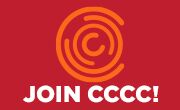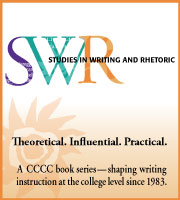This is the second and last installment in a two part series on the 2010 Digital Millennium Copyright Act exemptions. See the “Part One: The New DMCA Exemption for College Teachers and Students” link at the bottom of this page for the first installment.
As mentioned in Part One of this series, on July 26, 2010, the Librarian of Congress issued new exemptions to the anti-circumvention provisions of the DMCA (Digital Millennium Copyright Act) section 1201(a)(1), USC Title 17 pursuant to the statutorily authorized tri-annual rulemaking process. Of interest to college and university composition teachers and students, the new exemptions permit the circumvention of CSS (Content Scrambling System) encrypted DVDs in limited circumstances, for purposes of comment and criticism. Every three years these exemptions are issued pursuant to a process that involves public hearings followed by an elaborate and formal Recommendation written by the US Register of Copyrights to the Librarian of Congress. In her June 11, 2010, 262 page Recommendation, Mary Beth Peters, the current US Register of Copyrights, provides some concrete examples of remixes that likely are — or are not — “Fair Use.” These examples can be used as teaching tools for college/university instructors.
Under the doctrine of Fair Use, if a new work transforms an older copyrighted work, the new work could be within the Fair Use protections of Section 107, Title 17: U.S. copyright law. In her Recommendation, Peters suggests that noncommercial videos – fanfiction such as Luminosity’s Women’s Work and the remix political video by ParkRidge47 (ParkRidge47’s video is a political parody of a 1984 Apple Macintosh Commercial), might be transformative enough to be Fair Use, especially because only small, minutes-long portions were used in relation to entire 120 minute movies, or because the remixed video was “used for a new and different purpose from the original” (Recommendation, 2010, p. 51; Also I acknowledge some of the ideas in this month’s report derive from an in process chapter I’m working on with co-author Danielle Nicole DeVoss).
In contrast, Peters points out that some video remixes might not be Fair Uses, especially when they use “multiple clips from the same motion picture” and “larger percentages” of a single motion picture (Recommendation, 2010, p. 51). Luminosity’s Vogue/300 is one such remix described by Peters as “showing an extensive montage of scenes from the movie 300 mixed with Madonna’s sound recording, Vogue” (p. 51, footnote 187). Therefore, this remix probably isn’t making Fair Use of the materials it incorporates.
These concrete examples provided by Peters can also serve as teaching tools in the university/college writing classroom. After a brief discussion about Fair Use and the “Four Factor” Analysis (See Section 107), students can then be show the videos linked above, and asked to deliberate on which video is making Fair Use of others’ materials, and which isn’t. Their discussion can then be informed by Peters’ written Recommendation. These kinds of conversations can help students think critically about their own remix-writing practices in the context of copyright. For this reason – although Peters’ Recommendation is a bit dense and long for the average lay reader – it does contain some very useful information that when given in context, can provide an engaging teaching tool permitting students to gain knowledge about how Fair Use works in-action.
Respectfully Submitted 21 Feb. 2011,
Martine Courant Rife, JD, PhD
Junior Chair, CCCC IP Caucus
Lansing Community College
Lansing, Michigan
martinerife@gmail.com












